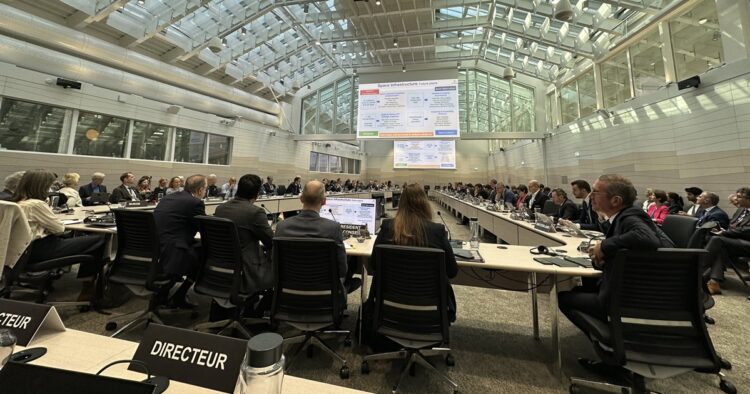In a recent development, the Director General of the European Space Agency (ESA), Josef Aschbacher, has lauded the Indian Space Research Organisation (ISRO) for its remarkable achievements in space exploration. During the 323rd Council meeting of the ESA held in Paris, Aschbacher expressed admiration for India’s accomplishments, particularly in lunar exploration, labeling them as ‘astonishing.’
Aschbacher took to social media platform X to share his appreciation for ISRO’s endeavors, highlighting the significance of strengthening ties and fostering deeper cooperation with international partners. The ESA Council meeting, attended by ISRO Chairman S. Somanath, served as a pivotal moment for delegates to delve into discussions regarding current and future plans for collaboration between ESA and ISRO.
Astronaut Thomas Pesquet also chimed in, emphasizing the enthusiastic exchanges witnessed between ISRO Chairman S. Somanath and ESA Director Josef Aschbacher during their meeting at the ESA headquarters in Paris. Pesquet expressed pride in welcoming Somanath and emphasized the plethora of cooperation opportunities between the two organizations, envisioning joint ventures in space exploration.
Bharat’s remarkable strides in space exploration have garnered global attention, with the successful soft landing of Chandrayaan-3 on the Moon’s South Pole and the launch of Aditya-L1, Bharat’s maiden solar mission, serving as standout achievements. Chandrayaan-3’s historic soft landing on the lunar surface on August 23, 2023, marked Bharat’s entry into the elite league of nations capable of achieving such feats.
The Chandrayaan-3 mission, part of ISRO’s Chandrayaan program, includes a Vikram lunar lander, a Pragyan lunar rover, and a propulsion module, aimed at exploring the Moon’s surface. Bharat’s successful mission has positioned it as the first nation to reach near the Moon’s unexplored South Pole, solidifying its place among the top four nations capable of executing soft landings on the lunar terrain.
In another significant milestone, India launched its inaugural solar mission, Aditya-L1, placing the spacecraft in the Halo orbit around the Sun-Earth Lagrange Point L1. The successful launch of Aditya-L1, following closely on the heels of the Chandrayaan-3 mission, has garnered widespread acclaim, underscoring India’s prowess in space technology and exploration.
Bharat’s achievements in space exploration not only elevate its stature in the global space arena but also catalyze the growth of the country’s private space sector. The successful missions serve as catalysts for further innovation and collaboration, paving the way for future joint ventures and partnerships in space exploration endeavors.
As nations across the globe continue to push the boundaries of space exploration, Bharat’s remarkable achievements stand as a testament to its commitment to scientific advancement and innovation, garnering accolades from international partners like the European Space Agency. With strengthened cooperation and collaboration, the future of space exploration holds immense promise, with Bharat poised to play a pivotal role in shaping the trajectory of humanity’s journey beyond Earth.

















Comments